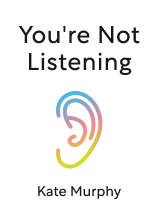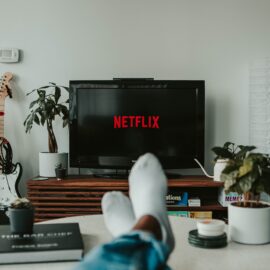

This article is an excerpt from the Shortform book guide to "You're Not Listening" by Kate Murphy. Shortform has the world's best summaries and analyses of books you should be reading.
Like this article? Sign up for a free trial here.
Do you experience loneliness? Would you like to be able to trust more—and get others to put more trust in you?
In You’re Not Listening, Kate Murphy explains that effective listening creates empathic connections between people. She explores three core benefits of these empathic connections, whether they’re in the context of friendships, romantic relationships, or parenting.
Keep reading to learn the three benefits of listening in relationships.
Benefits of Listening in Relationships
Scientific research shows that listening causes the brain waves of both the listener and speaker to start mirroring each other. This attunement creates strong feelings of personal connection that enable both speaker and listener to feel each others’ emotions and develop an empathic bond. Murphy outlines three benefits of listening in relationships.
(Shortform note: When Murphy discusses brain wave synchronization, she is referring to a process called neural entrainment. Brain activity naturally waxes and wanes in an oscillating pattern. The frequency of these oscillations can synchronize itself with external stimuli, such as the rhythm of a song. Researchers have found that synchronization depends on attention: The more closely someone listens to a song, the more their brainwaves will sync to its rhythm. As Murphy states, this also happens when people listen to each other. Scientists have even discovered that students’ brain activity will sync with each other when they’re more engaged in class and will diverge when they’re disengaged.)
Benefit #1: Alleviates Loneliness
Creating connections has the power to help us overcome loneliness. Murphy explains that people feel lonely when they’re emotionally disconnected from others. This could be either because they’re physically isolated, or because they’re unable to connect with others around them. Because effective listening forges empathic connections at the neurological level, it has the power to alleviate emotional isolation and loneliness.
(Shortform note: Many researchers argue that people in developed countries have become much lonelier in the past 50 years. The UK has even declared loneliness a national health concern and appointed a Minister of Loneliness. Researchers suggest several contributing factors. First, many people focus more heavily on their careers and getting ahead in life than on their relationships. Second, home entertainment systems have made it easier for people to stay home instead of gathering in public spaces like bowling alleys or pubs. Finally, the stigma of loneliness itself keeps people isolated. Those with few friends feel reluctant to disclose their isolation, keeping them from reaching out—and thereby deepening their loneliness.)
Benefit #2: Strengthens Intimate Relationships
Strong connections have the power to build more satisfying intimate relationships. Murphy explains that the deeper connections that come from effective listening enable trust: People are more likely to trust someone if they believe that person understands their feelings. Because effective listening allows you to understand someone else’s feelings on a deeper level, this will increase the likelihood that they’ll trust you.
Furthermore, Murphy states that trust is one of the most important foundations for a satisfying romantic relationship. Relationships without this foundation are more likely to fail.
| Signs That You’re Not Listening Effectively In Your Relationship Relationship experts agree with Murphy’s position that listening builds stronger relationships. Recall that most people overestimate their listening abilities—to keep your relationship strong, avoid behaviors that relationship experts say are signs that you may not be listening effectively to your partner. Changing the subject. Many partners will avoid difficult subjects by bringing up something else. This will leave the person raising the issue feeling unheard. Trying to convince. Some people will respond to a relationship problem by trying to persuade the other person out of their point of view. This will also leave them feeling like you’re not listening. Shifting responsibility. By trying to reframe a problem as your partner’s fault, you’ll shut down any chance to really hear what they’ve to say because they may become closed off and defensive. |
Benefit #3: Supports Healthy Development in Children
By forging strong connections through effective listening, parents can help their children grow into healthier adults. Murphy explains that children need to feel heard to build trusting relationships with their parents. When children grow up, their relationships with their parents will form the template for their future relationships with others. Children who don’t form strong connections with their parents may struggle to form strong connections with others later in life.
| How to Listen More Effectively to Your Children Even if you feel that you’re effectively listening to your child, Murphy explains that to gain the developmental benefits of a listening parent, children need to feel heard. Psychologists offer several pieces of advice for showing a child they’re being heard. 1. Prepare yourself to listen. When your child has something to say to you, take the time to prioritize listening. Put away whatever you’re doing and give them your undivided attention. 2. Ask your child what kind of feedback they’re looking for. Your child may be looking for affirmation, advice, or simply a chance to vent. Clearly understanding your child’s needs in the conversation will help them feel heard. 3. Acknowledge your child’s emotions. Recognize what your child is feeling and reflect it back to them with a simple statement like, “That must have been frustrating.” This helps children feel understood and teaches them to manage their emotions. |

———End of Preview———
Like what you just read? Read the rest of the world's best book summary and analysis of Kate Murphy's "You're Not Listening" at Shortform.
Here's what you'll find in our full You're Not Listening summary:
- A look at how listening skills are disappearing throughout society
- How to become a better, more effective listener
- Why it's easier to listen to strangers than to those close to you






